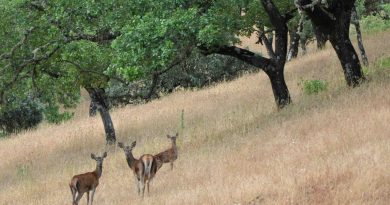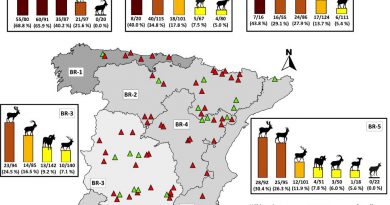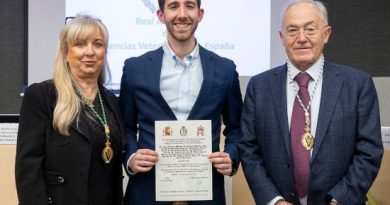Co-exposure to pathogens in wild ungulates from Doñana National Park, South Spain
Research in Veterinary Science
Abstract
Multiple infections or co-exposure to pathogens should be considered systematically in wildlife to better understand the ecology and evolution of host-pathogen relationships, so as to better determine the potential use of multiple pathogens as indicators to guide health management. We describe the pattern of co-exposure to several pathogens (i.e. simultaneous positive diagnosis to pathogens in an individual considering Mycobacterium tuberculosis complex lesions, and the presence of antibodies against Toxoplasma gondii, bluetongue virus, and hepatitis E virus) and assessed their main drivers in the wild ungulate community from Doñana National Park (red deer, fallow deer, and wild boar) for a 13-years longitudinal study. The lower-than-expected frequency of co-exposure registered in all species was consistent with non-mutually exclusive hypotheses (e.g. antagonism or disease-related mortality), which requires further investigation. The habitat generalist species (red deer and wild boar) were exposed to a greater diversity of pathogens (frequency of co-exposure around 50%) and/or risk factors than fallow deer (25.0% ± CI95% 4.9). Positive relationships between pathogens were evidenced, which may be explained by common risk factors favouring exposure. The specific combination of pathogens in individuals was mainly driven by different groups of factors (individual, environmental, stochastic, and populational), as well as its interaction, defining a complex eco-epidemiological landscape. To deepen into the main determinants and consequences of co-infections in a complex assemblage of wild hosts, and at the interface with humans and livestock, there also is needed to expand the range of pathogens and compare diverse assemblages of hosts under different environmental and management circumstances.




